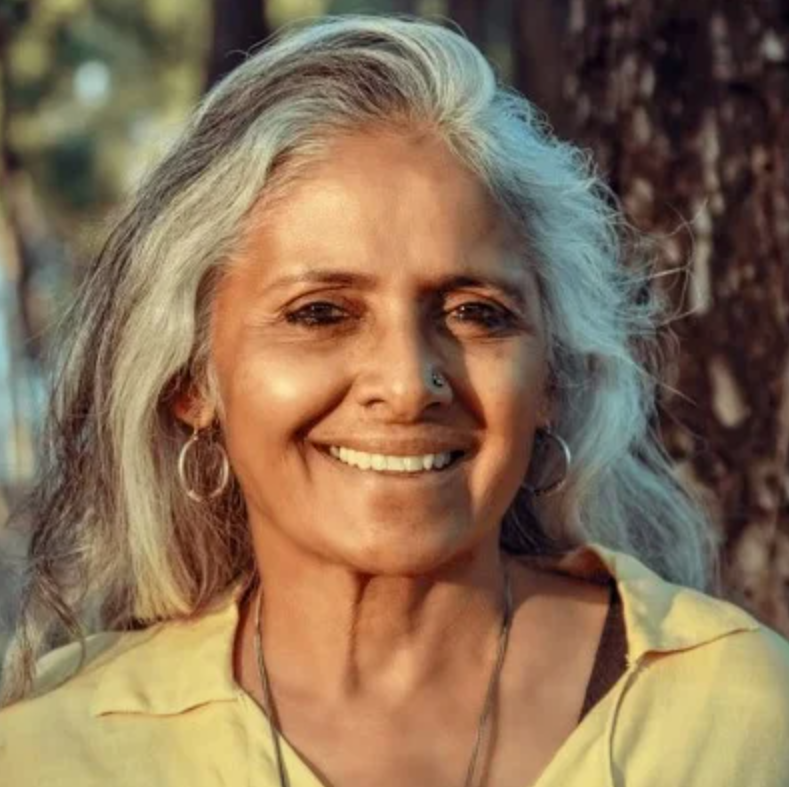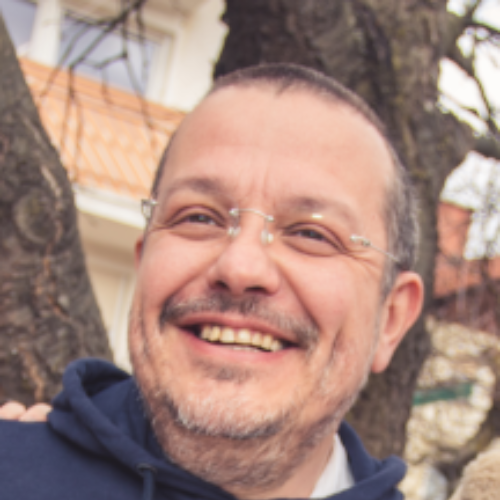Workshops offered by all trainers

Reena Ginwala
India
A.1. – Life Alienating Communication – Complain to Conflict
by Reena
We have been educated and conditioned. As a result of that, we have developed some habitual patterns for our survival which often disconnect us. We will explore the 4 Ds of disconnection and the 2 ways in which we engage when things do not work for us as we want. We will question our relationship with conflict and also understand the larger context of stages of conflict.
A.2. – Life Serving Communication – Empathic Holding of Intention and Impact with the Needs Lens
by Reena
Next step is to bring awareness to how we may engage with potential conflicts at earlier stages. The benefit of this is to make new choices and take action – so we may de-escalate conflict and also intervene with more awareness and understanding. How does my relationship with conflicts shift when I use OFNR and the 3 life serving NVC choices of Self Empathy, Empathy and Honest Expression? We usually stop at the intention, often stating, “My intention was not to hurt you or my intention was to protect you and hence I said something or did not let you do something you wanted”. From this restrictive space compromising autonomy, choice and trust to being curious about the impact of our words and actions on another person brings forth fresh energy in our relational spaces. Even if we cannot meet all needs, awareness of unmet needs opens up doors to connection through a shared holding of impact.
A.3. – Transforming Guilt, Shame with the Compass of Needs
by Reena
Deepening our holding of impact, we may also become aware of guilt, shame and frozen anger. This session helps us with the use of the Compass of needs created by Liv Larsson to walk towards anger, guilt and shame to uncover the beautiful needs behind them of Acceptance, belonging and Dignity. Again the process is valuable to uncover our limiting beliefs and unconscious reactions to more informed choices that help us feel free and whole.
A.4. – Mediation Tool Kit and Restorative Process
by Reena
The deeper work of conflict resolution requires fine tools. The 3 life serving choices also are enhanced with more creativity supporting connection and collaboration for considering all the needs surfacing and attempting to meet as many as possible. This session introduces the Mediation Hand and the 6 skills in the tool kit. We will also learn about the process and familiarize ourselves with the process that is more connected in a power-with energy. What is the gift that I can bring to my inner and outer world as a mediator? How do I live my purpose and contribute to life in me and in others around me? This session helps us unlearn and ‘uncondition’ ourselves.
A.5. – Mediation Practice and Self Evaluation as a Mediator
by Reena
As we proceed on the path to explore and practice mediation, it is also important to assess our inner environment. As we practice mediation in triads, we will also be more familiar with the barriers to listening – As a mediator, do I have a tendency to give advice, fix things, educate or am I able to hold empathic presence towards both parties to support connection and mutual understanding? Do I have bias or resistance to one party and preference for another? Do I feel disconnected or very stimulated by the conflict as it relates to my life experience or clashes with my beliefs? In this session we will do self assessment as a mediator and practice the process in different conflicts to gain familiarity and personal shifts in conflicts we may have seen, been a part of or are ‘stuck’ in.

Frank Gaschler
Germany
B.1. – Being Welcome
by Frank
How would it be if you were welcome just as you are? Without having to pretend. Without having to do anything for it. Accept and love yourself just as you are.
B.2. – Having Space
by Frank
If you want to be seen, you may show yourself. If you want to be heard, you may speak. And if you want to have your space, you can create it. You may learn how to set your boundaries.
B.3. – Being Held
by Frank
To be held, to be held out, to let yourself go. Replace control with trust. Find something that holds you and let go of what you can’t hold. Accept!
B.4. – Being Alive
by Frank
What kind of life do you want to live? The one that fulfils the expectations of others? The one you deserve? Or the one that keeps you alive?
B.5. – The dialog – what would LOVE hear and say?
by Frank
Talking with each other is much more than just two people talking. It is a mindful dialogue with mutual curiosity with the intention of strengthening the relationship. It is not about winning. It’s about what LOVE would hear and say. And about post-empathic solution requests.

Dr. Dmitriy Kopina
Slovenia
C.1. – Life Serving Requests
by Dmitriy
I find requests the most tricky part of NVC. In this workshop, we will mainly focus on small and important details, how to create requests that may serve and enrich your life and at the same time support others to be able to hear it and give them more choices of saying joyfully yes to it. We will be deeply engaged in the principles of inter-dependence and use most of the time to practice by moving through the space of request staps.
C.2. – Conscious Choices
by Dmitriy
We are in a constant decision-making process. Many of the choices we make are routine, some even don’t require much attention. In this workshop, we will explore how to make conscious choices when we are facing inner conflict, as these choices we make, may have an important impact on our lives. We will learn and practice how to resolve inner conflict by getting deep embodied contact to live in us, our feelings and needs, and search for strategies that support life in us. A simple yet powerful tool to use in daily life and practising NVC.
C.3. – Four Chairs of Consciousness
by Dmitriy
Gain insights into empathetic listening and conflict resolution strategies; Outcome: Enhanced ability to foster deeper connections and resolve conflicts effectively.
C.4. – Fun & Play NVC
by Dmitriy
I often hear that NVC is a serious practice and should not be taken lightly. At he same time, I get feedback from participants, that their family, friends, or colleagues struggle to learn NVC, as it involves lots of pain, vulnerability, and commitment (and it’s not fun). As much as learning and sharing principles of NVC may be a deep and emotionally intense process, there are also many ways of learning and sharing NVC with your dearest ones and workshop participants where people are more likely to dive into exploring NVC with ease, play and more creative and still efficient and enriching ways. We will be exploring a series of playful exercises you can use in many situations with more relaxed and less formal ways.
C.5. – Deep Embodied Self Empathy
by Dmitriy
Connecting and keeping a connection to life in us in any given moment enables us to speak and act aligned, with peace, and empathy, express honestly and find the courage to show vulnerability, allowing others to connect to us. Using the process of deep self-empathy, we can utilise our body intelligence to change our responses to inner or outer stimuli and connect to our needs rather than experiencing triggers and experience strong unpleasant feelings and emotions. It can also help us understand and internalise a path to embody and connect to our inner world, feelings and needs with more ease and confidence.

Sid
India
E.1. – Ultimate Courage: Workshops for men to allow themselves to feel
by Sid
Empower men to embrace vulnerability and emotional expression as sources of strength; Outcome: Increased emotional resilience and authenticity in personal and professional relationships. Explore cultural conditioning as a man
E.2. – Courageous Conversations: Workshop for women to own up to their needs !
by Sid
Equip women with assertiveness skills to confidently communicate and advocate for their needs; Outcome: Enhanced self-advocacy and empowered decision-making in various life domains. Explore cultural conditioning as a woman
E.3. – Four Chairs of Consciousness
by Sid
Gain insights into empathetic listening and conflict resolution strategies; Outcome: Enhanced ability to foster deeper connections and resolve conflicts effectively.
E.4. – What stops us from having courageous conversations? NVC and Trauma
by Sid
Understand how trauma impacts communication and learn tools to navigate difficult conversations with empathy; Outcome: Increased confidence in addressing sensitive topics with compassion and understanding.
E.5. – Self-Empathy: Finding safety and grounding when triggered
by Sid
Develop techniques for self-compassion and emotional regulation during challenging situations; Outcome: Improved ability to find calm and maintain emotional stability in triggering moments.
E.6. – Breaking Enemy Images: Forgiveness as a gift to self
by Sid
Explore the concept of forgiveness as a pathway to personal liberation and healing; Outcome: Greater capacity to release resentment and cultivate inner peace.
E.7. – Breaking myths around feelings and needs
by Sid
Challenge misconceptions about emotions and needs, promoting authentic self-expression and understanding; Outcome: Enhanced clarity and authenticity in identifying and communicating personal feelings and needs.

Vega Moon
Korea/India
F.1. – Exploring felt sense: doorway for deeper self-connection
by Vega Moon
Felt sense from our body is what all of us have but we might have lost the connection. Embracing our feelings and needs in NVC, the body can be an effective tool for helping us to be present, to connect to our real feelings and emotions more deeply.
So in this session, we will connect to our body and felt sense, and use it for our self-connection, empathy.
F.2. – Dyad (include verbal, movement, sound)
by Vega Moon
Dyad is a powerful tool for me to go deeper into our being, practice presence, but sometimes it can go with repetitive mind and stories. In this session, we will practice dyad meditation with reflection, verbal sharing, and also using movement and sound, so we can explore with more presence and wholeness of our being.
F.3. – Self-empathy through our body
by Vega Moon
We will see the effect of our judgments in our body and how it shifts when we connect to our needs. Then we will practice self-empathy using our body parts, so we can bring more awareness in our state.
F.4. – Gratitude: connecting to sweet juice of our lifeg
by Vega Moon
We will explore what gratitude is, and why it is important in our daily life and NVC practice. We will practice, expressing gratitude, receiving gratitude, and self-appreciation.
F.5. – Let it pass like wind – not to react but to respond
by Vega Moon
We will practice how we can respond to the trigger, without or with less reaction through an embodied practice. We will connect to what matters to us, and practice for letting the trigger pass like wind.
F.6. – Shame
by Vega Moon
We will see how shame affects our body and being, and how we can explore the areas where we have shame. And we will practice embracing our shame gently with others’ presence.
F.7. – Embracing our Inner/core belief
by Vega Moon
We might have repetitive voices and stuck patterns from our past and they don’t go easily. We will explore and connect to our inner belief as if we connect to our inner child and mother/parent the part with love and gentleness. So we can develop further connection and communication that can help us release our core beliefs and live life in the moment.

Shyla
India
G.1. – Free Fall
by Shyla
This is a group process that reminds yourself through experiential learning on how we can live our lives with acceptance , dignity and understanding of oneself .
In a stressful and highly competitive society that has foisted self doubt , self judgment and a loss of self esteem” Free Fall” is a huge inner adventure to meet yourself authentically and courageously in a safe space .
G.2. – Chee! Shame on you!!
by Shyla
This deep internalized shame gives rise to distorted thinking. The distorted thinking can be reduced to the belief that I’ll be okay if I drink, eat, have sex, get more money, work harder, etc.- John Bradshaw
Shame is sometimes described as the price we pay for being part of a social context. However, I see that there are other ways to become aware that other’s needs are not being met than to feel shame. If we have continuous connection with our own and other’s needs, we do not need shame as an “alarm signal”. Connection with needs helps us to reach before we are overwhelmed by shame. This session includes an Art Play Book, Yes! a play book and not a workbook, where you can reflect solitarily or collectively draw , colour or doodle.
G.3. – Oh No ! Not another No!
by Shyla
How many times have we been baffled by this reply when we have received it . We may have felt a cold streak run down our spine , maybe goosebumps and red ears.
Sometimes it felt like a rejection , or a facepalm. How can we deal with it ?
What do we need to face it with equanimity and acceptance .
Come let’s explore !

Sri Ram
Nepal
H.1. – The Ocean of Needs: Emotional Literacy
by Sri Ram
Diving deeper into the ocean of human needs and emotions. This session focuses on developing emotional literacy by understanding and articulating our needs and feelings. Participants will gain tools to improve their emotional literacy, fostering better relationships and enhancing their ability to empathize with self and others.
H.2. – Cultivating Self-Awareness: Growing Our Roots Deeper and Stronger
by Sri Ram
This foundational session introduces the core principles of Nonviolent Communication (NVC). Participants will learn the basics of observing without judgment, identifying and expressing feelings, recognizing needs, and making clear, actionable requests. Ideal for beginners, this session lays the groundwork for understanding and practicing NVC in daily life.
H.3. – ABCs of NVC
by Sri Ram
How many times have we been baffled by this reply when we have received it . We may have felt a cold streak run down our spine , maybe goosebumps and red ears.
Sometimes it felt like a rejection , or a facepalm. How can we deal with it ?
What do we need to face it with equanimity and acceptance .
Come let’s explore !
H.4. – Making Our Work a Play: From Blame to Responsibility
by Sri Ram
Transform your work environment by shifting from a culture of blame to one of responsibility. This session provides strategies for creating a playful, collaborative atmosphere where accountability is embraced positively. Learn how to foster a supportive and productive workspace through clear communication and mutual respect.
H.5. – From Reaction to Response: Claiming Our Own Superpower
by Sri Ram
Empower yourself by learning to respond thoughtfully rather than react emotionally. This session offers techniques for managing impulses and making conscious choices. We will explore and reflect ways to harness our inner strength, transforming knee-jerk reactions into deliberate, empowering responses.